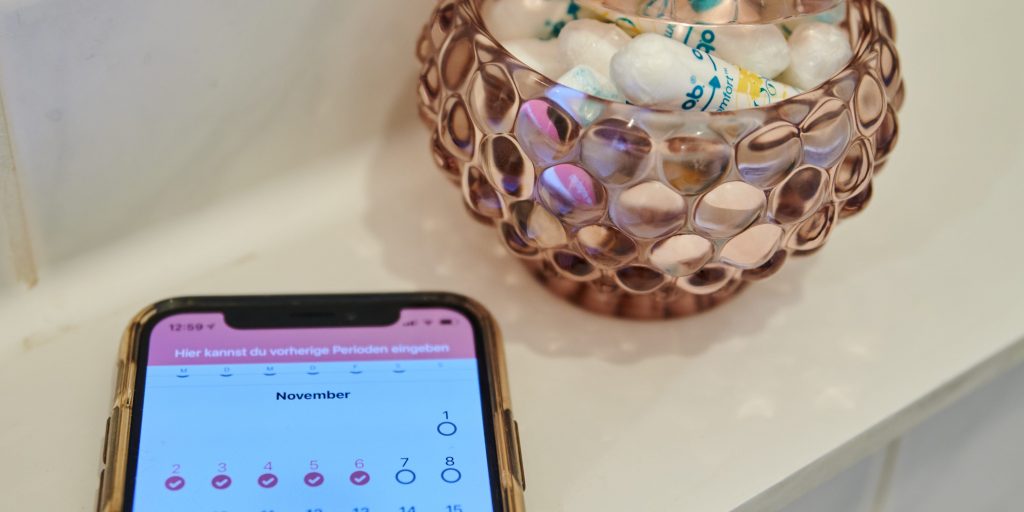- To track your period, note how long it lasts, symptoms, how heavy it is, and discharge.
- You can track your period with apps like Flo or MagicGirl, a calendar, or a notebook.
- Tracking your period helps you spot irregularities, predict ovulation, and know how fertile you are.
Tracking your period can be a useful tool for understanding your menstrual cycle, knowing when you're most fertile, and noting irregularities that could indicate a serious underlying condition.
Since there are many different methods to choose from when tracking your period, it can be hard to know where to start if you've never done it before.
Here's a look at how to track your period and why it matters.
How to track your period
To track your period you can use a variety of methods both old-school and digital. If you're worried about data privacy issues, you may want to stick to the old-fashioned methods.
Here are some ways to keep tabs on your flow:
- Use a calendar. Mark the start and end dates of your period on a calendar each month.
- Make a note. Write the dates down in a notebook or post-it note.
- Make a digital note. Keep a record in the Notes app of your phone.
In addition to tracking the start and end dates of your period, you may also want to take note of other symptoms and when they occur, including:
- How heavy your bleeding is
- Physical symptoms, like fatigue, headaches, cramping, and bloating
- Mood swings, which affect 30% to 80% of people who menstruate
- Consistency of your vaginal discharge, like if it's watery, thick, or sticky
After about three or four months of tracking your period and symptoms, you may start to notice patterns that can help you predict the timing of your next menstruation, says Dr. Sophia Yen, CEO and co-founder of Pandia Health, a birth control delivery service.
Why you should track your period
Everyone is different and no two cycles are exactly the same. Keeping track of yours can help you better understand your body's unique rhythm and help you identify issues that may need medical intervention.
Tracking your period can:
- Provide a timeline of your menstrual cycle. Only about 13% of menstruating people have a menstrual cycle that lasts the typical 28 days. Therefore, most people's cycles fall somewhere between 21 to 35 days. Tracking your period can help you determine your flow's own unique timeline.
- Identify potential health complications. Irregular cycles that are shorter than 21 days or longer than 35 days may indicate an underlying issue, like a thyroid condition or polycystic ovary syndrome (PCOS). If you regularly experience cycles that are shorter than 21 days or longer than 35 days, or you miss your period for more than three months in a row, consult with your doctor, Yen says.
- Help determine when you're ovulating. Ovulation — when your ovaries release an egg — typically occurs between 10 and 14 days after you start your period, and determines when you are most fertile. While ovulation only lasts one day, you may be fertile for three to five days beforehand since sperm can live inside your body for a few days.
- Monitor how heavy and painful your flow is. Extremely heavy and painful periods that cause you to miss school or work may also indicate a health problem, like endometriosis. Additionally, knowing how heavy or light your period is ensures you have the appropriate hygiene products for your flow.
- Help you prepare for PMS symptoms like mood swings, headaches, or fatigue. Knowing when to expect these symptoms can help you plan ways to ease them, like making sure you have OTC pain relievers or tweaking your diet, says Dr. Huong Nghiem-Eilbeck, an OB-GYN with AltaMed Health Services.
Insider's takeaway
Tracking your period, like with an app or on a calendar, can offer valuable insight about your health, such as when you are most fertile or whether your cycle is irregular.
Understanding this can help you better predict your next period and help you identify symptoms that may warrant a discussion with your health care provider.










